第51章
"It was not for threepence, nor for any amount of money, that America quarrelled with England," replied Grandfather; "it was for a great principle. The colonists were determined not to be taxed except by their own representatives. They said that neither the king and Parliament, nor any other power on earth, had a right to take their money out of their pockets unless they freely gave it. And, rather than pay threepence when it was unjustly demanded, they resolved to sacrifice all the wealth of the country, and their lives along with it. They therefore made a most stubborn resistance to the Stamp Act.""That was noble!" exclaimed Laurence. "I understand how it was. If they had quietly paid the tax of threepence, they would have ceased to be freemen, and would have become tributaries of England. And so they contended about a great question of right and wrong, and put everything at stake for it.""You are right, Laurence," said Grandfather, "and it was really amazing and terrible to see what a change came over the aspect of the people the moment the English Parliament had passed this oppressive act. The former history of our chair, my children, has given you some idea of what a harsh, unyielding, stern set of men the old Puritans were. For a good many years back, however, it had seemed as if these characteristics were disappearing. But no sooner did England offer wrong to the colonies than the descendants of the early settlers proved that they had the same kind of temper as their forefathers. The moment before, New England appeared like a humble and loyal subject of the crown; the next instant, she showed the grim, dark features of an old king-resisting Puritan."Grandfather spoke briefly of the public measures that were taken in opposition to the Stamp Act. As this law affected all the American colonies alike, it naturally led them to think of consulting together is order to procure its repeal. For this purpose the Legislature of Massachusetts proposed that delegates from every colony should meet in Congress. Accordingly nine colonies, both Northern and Southern, sent delegates to the city of New York.
"And did they consult about going to war with England?" asked Charley.
"No, Charley," answered Grandfather; "a great deal of talking was yet to be done before England and America could come to blows. The Congress stated the rights and grievances of the colonists. They sent a humble petition to the king, and a memorial to the Parliament, beseeching that the Stamp Act might be repealed. This was all that the delegates had it in their power to do.""They might as well have stayed at home, then," said Charley.
"By no means," replied Grandfather. "It was a most important and memorable event, this first coming together of the American people by their representatives from the North and South. If England had been wise, she would have trembled at the first word that was spoken in such an assembly."These remonstrances and petitions, as Grandfather observed, were the work of grave, thoughtful, and prudent men. Meantime the young and hot-headed people went to work in their own way. It is probable that the petitions of Congress would have had little or no effect on the British statesmen if the violent deeds of the American people had not shown how much excited the people were. LIBERTY TREE was soon heard of in England.
"What was Liberty Tree?" inquired Clara.
"It was an old elm-tree," answered Grandfather, "which stood near the corner of Essex Street, opposite the Boylston Market. Under the spreading branches of this great tree the people used to assemble whenever they wished to express their feelings and opinions. Thus, after a while, it seemed as if the liberty of the country was connected with Liberty Tree.""It was glorious fruit for a tree to bear," remarked Laurence.
"It bore strange fruit, sometimes," said Grandfather. "One morning in August, 1765, two figures were found hanging on the sturdy branches of Liberty Tree. They were dressed in square-skirted coats and small-clothes; and, as their wigs hung down over their faces, they looked like real men. One was intended to represent the Earl of Bute, who was supposed to have advised the king to tax America. The other was meant for the effigy of Andrew Oliver, a gentleman belonging to one of the most respectable families in Massachusetts.""What harm had he done?" inquired Charley.
"The king had appointed him to be distributor of the stamps," answered Grandfather. "Mr. Oliver would have made a great deal of money by this business. But the people frightened him so much by hanging him in effigy, and afterwards by breaking into his house, that he promised to have nothing to do with the stamps. And all the king's friends throughout America were compelled to make the same promise."